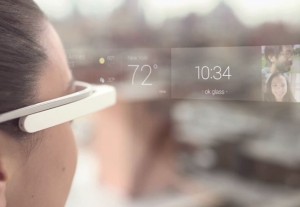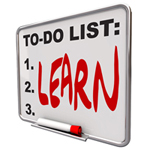 When I spoke with colleagues about web sites in 1996, the responses included “why do we need web pages?“. Comments such as “students don’t use mobile devices” and “social media is just a fad so why are we even investing time and effort into them” are typical when I talked about using mobile websites and using social media for conducting student affairs business a few years ago. I hear the same skepticism with Google Glass. I’ve been sharing my enthusiasm about this product lately as I was selected to pay for the early version via #ifIhadglass contest. I hope to get my invitation to buy an early version of Google Glass soon.
When I spoke with colleagues about web sites in 1996, the responses included “why do we need web pages?“. Comments such as “students don’t use mobile devices” and “social media is just a fad so why are we even investing time and effort into them” are typical when I talked about using mobile websites and using social media for conducting student affairs business a few years ago. I hear the same skepticism with Google Glass. I’ve been sharing my enthusiasm about this product lately as I was selected to pay for the early version via #ifIhadglass contest. I hope to get my invitation to buy an early version of Google Glass soon.
I don’t know if in fact Google Glass will be a success in the near future but I have a feeling we are entering a new era in computing. Privacy and ethical issues, as well as appropriate uses will obviously be issues to resolve, just like with other technologies. I posted a statement on facebook a month or so ago about Google Glass in higher education. A couple of friends, including Joe Ginese, offered the ideas below:
Advising (Academic, Career):
- Roving advisor. Advise students in a cafe with no laptop as long as you had wi-fi.
- “Career/interview coach” on Glass. Perform mock interviews with Google Glasses worn by student/career coach. Interviews can then be critiqued for body language and responses.
POV Behind The Scenes/Tours:
- Career counselor take tours of potential employers and give a POV tour of the facility or office.
- Share behind-the-scenes videos (how groundskeepers maintain the campus, dining services chefs preparing meals).
Academic/Vocational Training Uses:
- Career Counselors take tours of potential employers and give a POV tour of facility or office.
- Real-time translation and recording for international students who have a hard time keeping up with the lecturer.
- Dictionary/thesaurus when professors use difficult words.
- Real-time videos of techniques (culinary/art schools showing how-tos and technique training)
What other uses can you add to the ideas above?
Image of google glass provided by this website.
